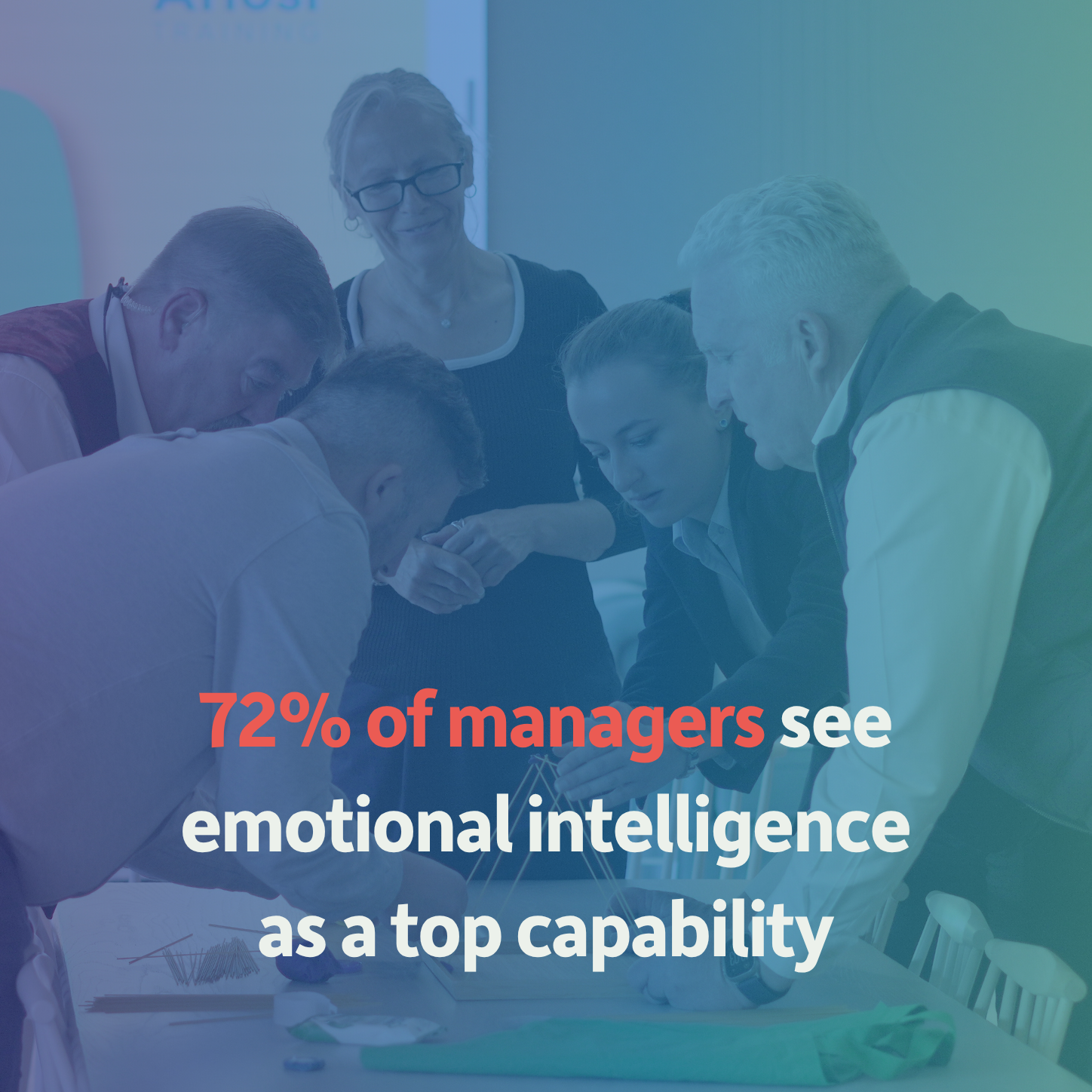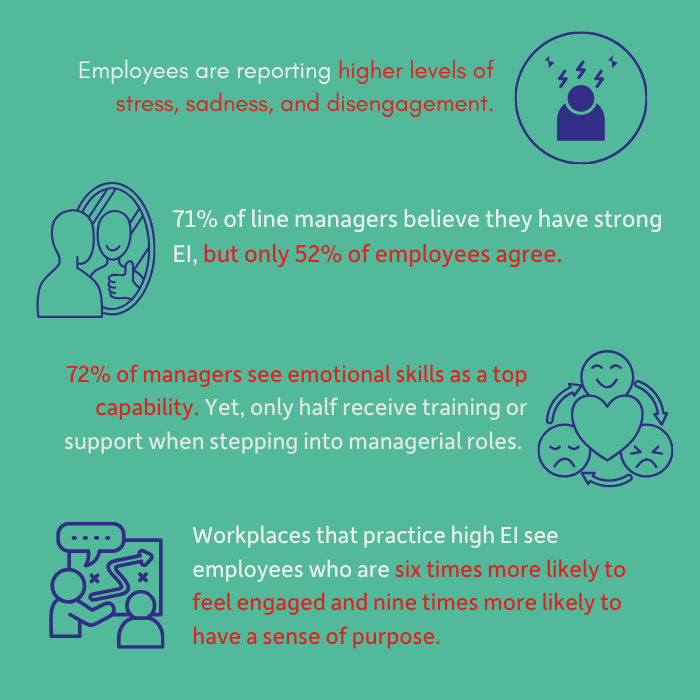Why emotional intelligence is the secret ingredient to thriving workplaces
Technical skills are no longer enough. From hybrid teams to AI-driven processes, the human side of work (our ability to understand and manage emotions), has become just as critical. This is where emotional intelligence (EI) comes in.
Emotional intelligence isn’t a soft skill you can overlook. It’s the ability to recognise, understand, and manage your own emotions, while also being able to read, empathise with, and influence the emotions of others. In workplaces, high EI translates to stronger leadership, better teamwork, happier employees, and even improved business outcomes.

Before you read on...
Want to know more about our courses, including our emotional intelligence course? Take a look at our brochure to see what’s on offer, how our courses work, and how to enrol.
Download Brochure
The big picture: what the data says
Recent surveys and reports show that workplaces are recognising the importance of emotional intelligence but there’s still a gap between awareness and practice:
- The emotional burden is rising: a trend reflected globally by Six Seconds’ 2024 “State of the Heart” report. Hybrid working and EI-driven change may increase the emotional demands on staff, highlighting the importance of EI in leadership and teams.
- Managers overestimate their EI: A 2023 survey by Working to Wellbeing found that 71% of line managers believe they have strong emotional intelligence, but only 52% of employees agree. The gap widens among older employees, showing that perception and reality don’t always align.
- leaders value EI but often don’t get support: According to Mind Tools & YouGov (2024), 72% of managers see emotional skills like empathy and self-regulation as a top capability. Yet, only half receive training or support when stepping into managerial roles.
- Recognition and culture matter: O.C. Tanner’s 2025 Global Culture Report shows that workplaces that practice high EI (through recognition, empathy, and effective communication) see employees who are six times more likely to feel engaged and nine times more likely to have a sense of purpose.

Why leaders can’t ignore emotional intelligence
Emotional intelligence isn’t just “nice to have.” Leaders with high EI:
- Handle difficult conversations with empathy and confidence
- Build trust and psychological safety in hybrid teams
- Improve collaboration and reduce workplace conflict
- Support employees’ wellbeing, engagement, and retention
In short, EI shapes the culture of an organisation. And as AI takes over routine tasks, EI is one of the human skills that remains irreplaceable.
How can you improve you and your teams emotional intelligence?
Organisations can take practical steps to boost EI across the workforce:
- Assessment & Feedback: Use tools like EQ-i 2.0 or 360° feedback to understand strengths and development areas.
- Training & Coaching: Workshops, role-plays, and coaching sessions help leaders practice EI in real-life scenarios.
- Embedding EI in Culture: Recognition, daily feedback, and supportive team practices reinforce emotionally intelligent behaviours.
- Measure Impact: Track changes in employee engagement, wellbeing, retention, and business outcomes to see tangible results.
As the evidence makes clear, workplaces that invest in emotional intelligence see happier, more engaged employees and better business outcomes. In the UK and around the world, EI is no longer optional; it’s the secret ingredient to thriving organisations.
Bottom line: Organisations that invest in emotional intelligence don’t just survive, they thrive! As AI and hybrid work reshape the workplace, EI is the human skill that can’t be automated.

